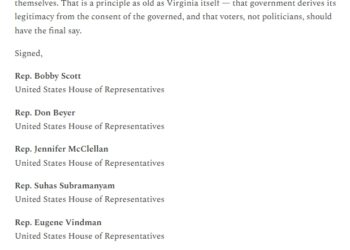OK, if Sen. Chap Petersen can do this, then so can I. 🙂 Unlike Chap, I can’t really say what my top 10 are, so I’m going for top 50 (in no particular order). How about you…any favorites?
1. The Time Machine by HG Wells: By almost any standard, one of the greatest works of science fiction. I’ve read this one multiple times, even gave it a shot in French (when I was studying French; it’s definitely better in the original language it was written in – English.)
2. A Canticle for Leibowitz by Walter M. Miller: An astounding, haunting, powerful book about mankind repeating the same horrible mistakes, over and over again.
3. The Red Badge of Courage by Stephen Crane: One of the greatest, most realistic war novels (although it’s much more than that), even though its author was born after the Civil War and had never experienced battle firsthand.
4. The Adventures of Huckleberry Finn by Mark Twain: Considered one of the greatest novels ever written by an American, and for good reason, this book explores themes of race/racism and identity that are clearly still with us today.
5. The Adventures of Tom Sawyer by Mark Twain: A superb book as well, although not as great as Huckleberry Finn. Still, this is an American classic and for good reason.
6. Candide by Voltaire: As Wikipedia describes it, “Voltaire ridicules religion, theologians, governments, armies, philosophies, and philosophers through allegory; most conspicuously, he assaults Leibniz and his [absurd, Panglossian, “all is for the best in the best of all possible world”] optimism.” What’s not to like? 🙂
7. Lord of the Rings by JRR Tolkien: The movies had their moments, but as someone who’s read these books many times, they’re not even 1% of what makes the trilogy so great. LOTR is, of course, one of the greatest examples of the “hero’s journey,” but it’s also an exploration of power (and how power can corrupt), loyalty, love, morality, language, nature, modernity, and much more. This one can be read on many, many different levels, each rewarding in its own way.
8. The Stranger by Albert Camus: Perhaps the greatest “existentalist” novel, explores themes of alienation, absurdity, society, and finding meaning in an utterly indifferent universe. Timeless.
9. Hamlet by Shakespeare: I could easily throw in several more by Shakespeare, but Hamlet remains my favorite play by the greatest playwright in English, or possibly in any language.
10. 1984 by George Orwell: Set in a world “of perpetual war, omnipresent government surveillance, and public mind control.” Sound familiar? Well, too close for comfort, anyway.
11. Animal Farm by George Orwell: A powerful “allegorical and dystopian novel by George Orwell, published in England on 17 August 1945. According to Orwell, the book reflects events leading up to the Russian Revolution of 1917 and then on into the Stalin era in the Soviet Union.”
12. Heart of Darkness by Joseph Conrad: “It is tempting to see Heart of Darkness as a masterfully constructed parable on human nature (witness Apocalypse Now, Francis Ford Coppola’s film adaptation, in which the action was transposed to south-east Asia) but as historian Adam Hochschild has pointed out in King Leopold’s Ghost, about the king’s rape of the Congo, Conrad himself was quite clear that it was based on specific events he had witnessed.”
13. His Dark Materials by Philip Pullman: As Michael Dirda wrote in the Washington Post, “His Dark Materials is a novel of electrifying power and splendor, deserving celebration, as violent as a fairy tale and as shocking as art must be.”
14. Dune by Frank Herbert: In addition to being an amazing example of world creation, I agree with Jon Michaud’s New Yorker article that Dune, in addition to being “an epic of political betrayal, ecological brinkmanship, and messianic deliverance” and “creat[ing] for the reader a complex, fully-realized universe,” may be “even more relevant now than when it was first published.”
15. Watership Down by Richard Adams
16. Lord of the Flies
17. Brave New World by Aldous Huxley
18. The Plague by Albert Camus
19. Charlotte’s Webb by EB White
20. The Leopard
21.
22. The Main in the High Castle by Philip Dick
23. Last and First Men by Olaf Stapledon
24. Star Maker by Olaf Stapledon
25. A Portrait of the Artist as a Young Man by James Joyce
26. The Grapes of Wrath by John Steinbeck
27. The Old Man and the Sea by Ernest Hemingway (but actually, Hemingway’s short stories – “Big Two-Hearted River,” “The Killers,” etc. – are the best IMHO; also check out “A Moveable Feast”)
28. A House for Mr. Biswas by V.S. Naipaul
29. The Foundation Trilogy by Isaac Asimov
30. The Stars My Destination by Alfred Bester
31. The Demolished Man by Alfred Bester
32. The Brothers Karamazov by Fyodor Dostoevsky (The Grand Inquisitor scene is worth reading no matter what, even if you don’t read the entire book)
33. The Call of the Wild by Jack London
34. Howard’s End by E.M. Forster
35. A Passage to India by E.M. Forster
36. The Quiet American by Graham Greene
37. The Periodic Table by Primo Levi
38. To Kill a Mockingbird by Harper Lee
39. Darkness at Noon by Arthur Koestler
40. The Mars Trilogy by Kim Stanley Robinson
41. The Drowned World by J.G. Ballard (also check out his short stories, which are superb)
42. Blindness by Jose Saramago
43. Cairo Trilogy by Naguib Mahfouz
44.

![[UPDATED with Official Announcement] Audio: VA Del. Dan Helmer Says He’s Running for Congress in the Newly Drawn VA07, Has “the endorsement of 40 [House of Delegates] colleagues”](https://bluevirginia.us/wp-content/uploads/2026/02/helmermontage.jpg)
















